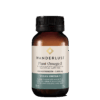YOUR CART
- No products in the cart.
Subtotal:
AU$0.00
BEST SELLING PRODUCTS
AU$43.49–AU$60.49Price range: AU$43.49 through AU$60.49
AU$32.49–AU$52.99Price range: AU$32.49 through AU$52.99
AU$38.99–AU$103.99Price range: AU$38.99 through AU$103.99
AU$37.99–AU$52.99Price range: AU$37.99 through AU$52.99
AU$59.99–AU$95.99Price range: AU$59.99 through AU$95.99





